Congratulations Mark!
Congratulations Mark!
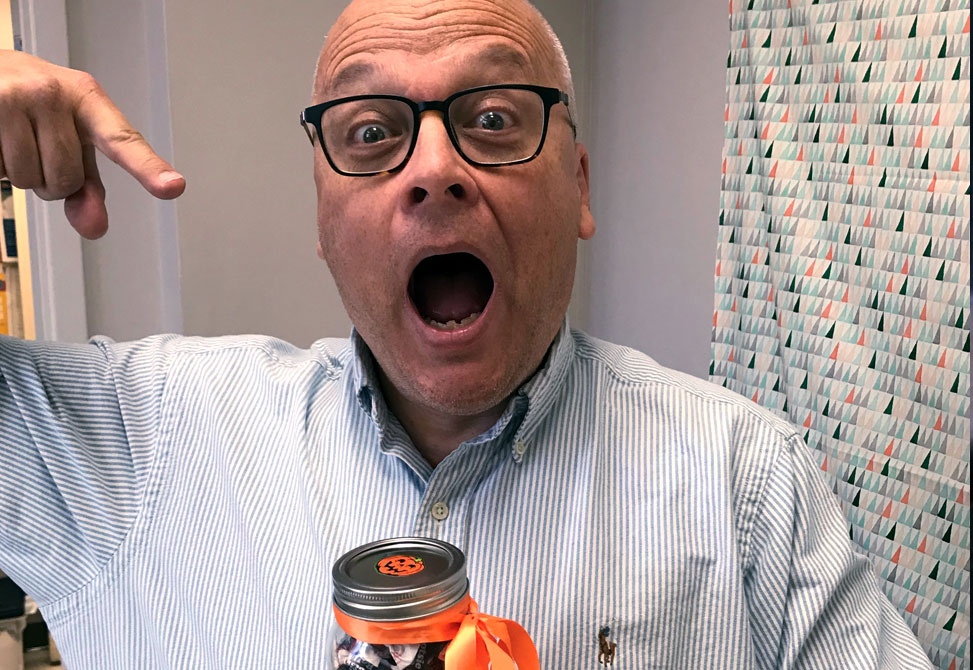
Congratulations to Professor Mark McCombs, winner of the Math Department Halloween Candy Guessing Game! There were 86 tootsie rolls in the jar, and Mark guessed 85. Congratulations, Mark! And Happy Halloween, from the Math Department!
AWM Receives Grant
AWM Receives Grant
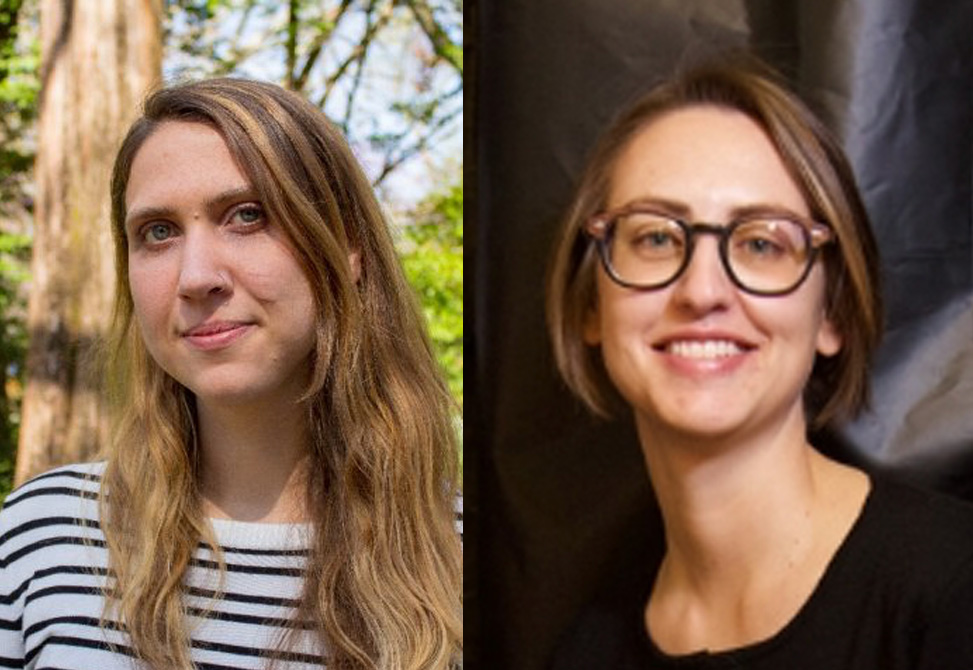
We are excited to announce that our AWM Chapter has received funding to organize the first Association for Women in Mathematics Triangle Conference.” Francesca Bernardi and Katrina Morgan, with Dr. Katie Newhall as Faculty Advisor, have received funds through the “WATCH US” grant from the NSF INCLUDES program. This undergraduate/graduate conference will take place early in the Spring ’18 semester in the Mathematics Department of the University of North Carolina at Chapel Hill with attendees from several local universities and colleagues.
Congratulations Francesca, Katrina, and Dr. Newhall!
Inaugural Sue E. Goodman Award
Inaugural Sue E. Goodman Award
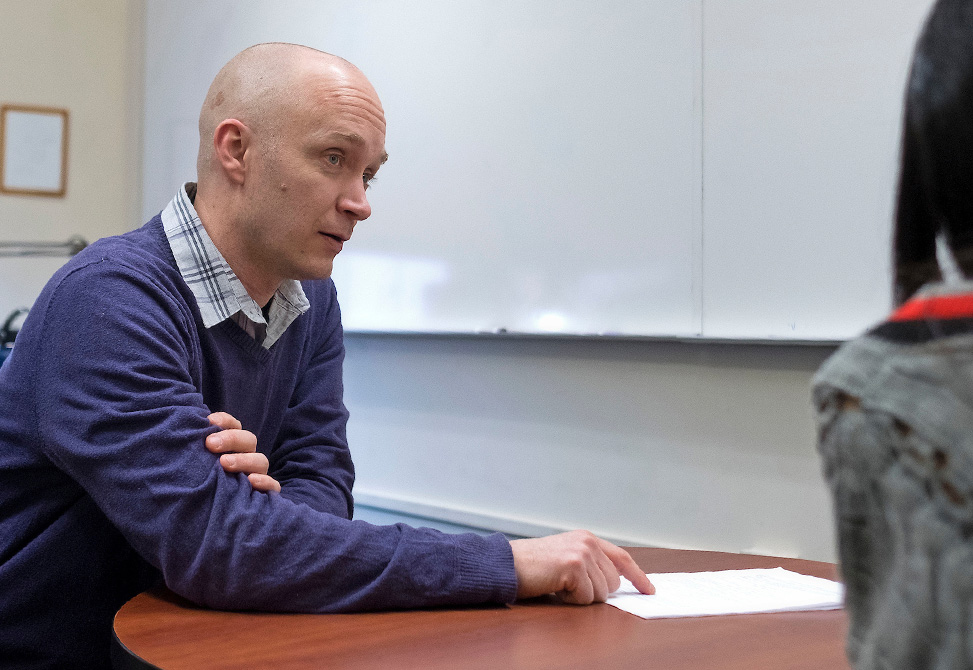
At the May 17 commencement ceremony, Jason Metcalfe was honored with the inaugural Sue E. Goodman Award. The award was presented by Professor Jeremy Marzuola, who, in his commencement address expressed his honor in “awarding someone who so embodies her devotion and passion for the craft of teaching.”
Jason graduated from Johns Hopkins University in 2003, writing a thesis under Chris Sogge, then spent time at Georgia Tech and Berkeley before coming to UNC in 2007, where is now a full Professor. Jason’s research fopcuses on Partial Differential Equations, especially in areas related to nonlinear wave equations and General Relativity.
During his time here, Jason has taught many undergraduate courses, and worked on several successful research projects with undergraduates. He has received great praise for his ability to take difficult concepts and through a combination of thoughtfulness, care, and examples, explain them in ways that seem to connect with a remarkable number of students.
Jason has received multiple comments such as, “that is by far the most accessible a professor has ever been for me at UNC and my time with him was incredibly helpful,” and “if I could take every math class at UNC with Jason, I would.” Also, “Professor Metcalfe is amazing. He goes above and beyond for his students. His course is difficult but fair and if you put the work in it definitely shows. He works so hard, which is greatly appreciated. The plethora of material he endows us with really helps too!!”
If it were just one student saying such things, it would be an honor to have made such an impact. However, sentiments such as these are echoed by numerous students over numerous classes, which is truly remarkable.
Congratulations Professor Metcalfe on this well deserved honor!
Richard Rimanyi Distinguished Term Professor
Richard Rimanyi Distinguished Term Professor
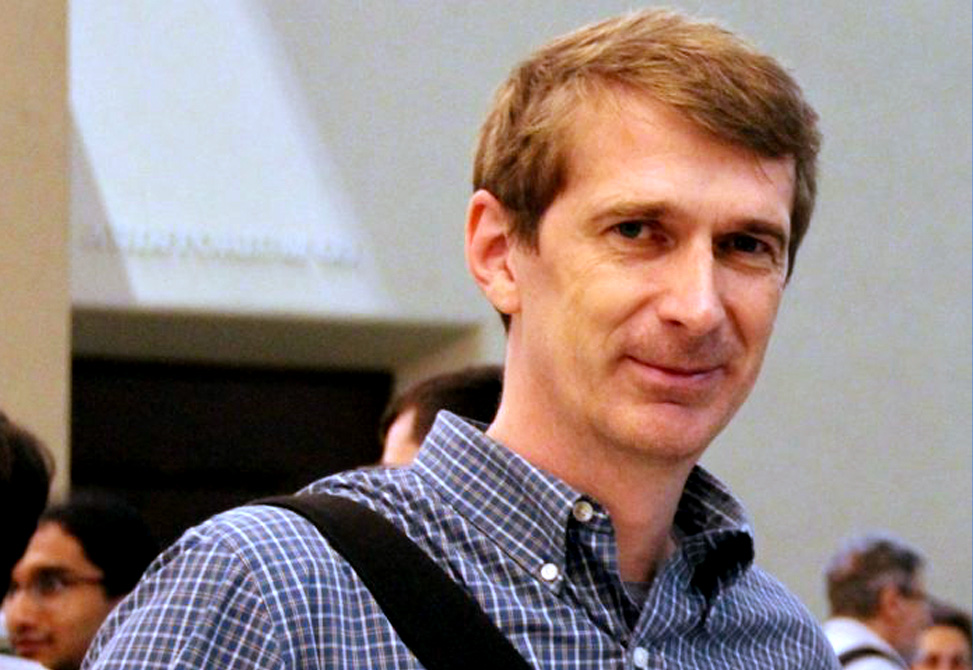
Congratulations Professor Richard Rimanyi for being named as the Bowman & Gordon Gray Distinguished Term Professor!
The Bowman and Gordon Gray Professorship is one of the University’s most esteemed awards for excellence in undergraduate teaching. These professorships help Carolina support its best teachers and scholars, providing a salary supplement, an annual fund for research, and a one-semester research and study assignment during the five-year term of the award.
The late Gordon Gray, who graduated from UNC in 1930, and the estate of Bowman Gray Jr., a 1929 graduate, established the professorships in 1980 in the College of Arts and Sciences. Bernard Gray, UNC Class of 1972 and Gordon’s son, significantly enhanced the 5-year professorships with a gift in 1999 to expand the salary and research supplement, and include a semester-long sabbatical.
Rimanyi is the third member of the Department to hold this position, joining Peter Mucha, who received the award in 2012, and Professor Sue Goodman, who held the award from 1991 to 1994.
Congratulations to Professor Rimanyi on this well-deserved recognition!
Fluids Lab Attract Research Partners
Fluids Lab Attract Research Partners
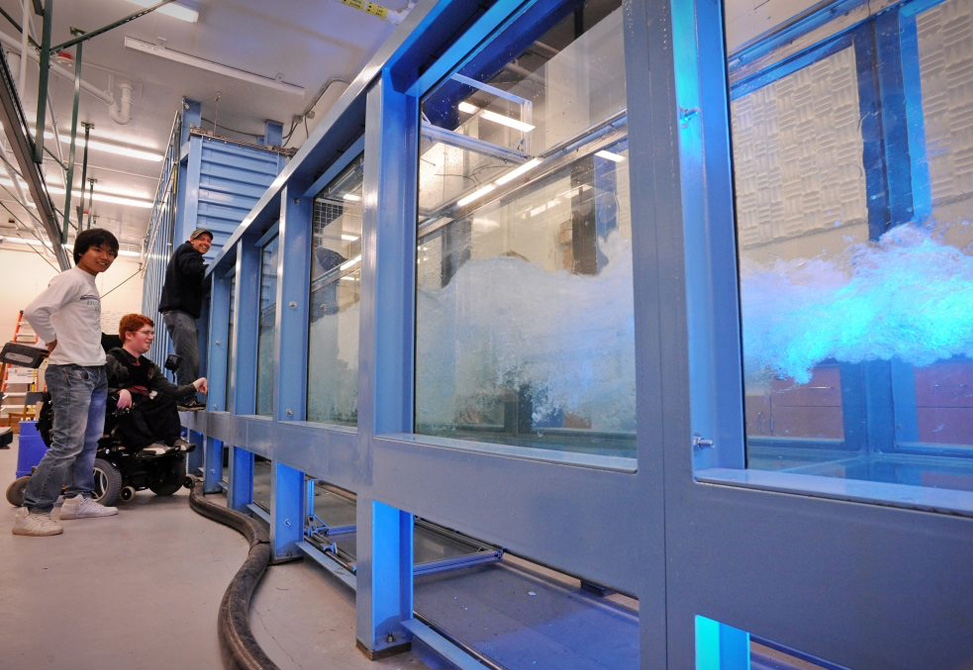
Roberto Camassa’s research is very fluid. The Kenan Distinguished Professor of Applied Mathematics actively engages in collaborative projects ranging from oil spills to marine sciences to human disease. His partners include UNC faculty and graduate and undergraduate students in anthropology, physics, computer science and marine sciences.
“It really helps to hear from others with different expertise and to be exposed to different research,” Camassa said. “Sometimes you’re surprised when something turns out to be more salient to what you’re doing than you initially thought.”
One of his collaborators is Pierre-Yves Passaggia, a postdoctoral fellow in marine sciences. Passaggia is studying the dynamics of ocean circulation. Another collaborator is physics graduate student Jeff Olander, the lab safety and data manager in the Joint Applied Math and Marine Sciences Fluids Lab in Chapman Hall, the nexus for many shared studies.
The three scientists work together on fluid dynamics, a field that encompasses not just ocean currents and waves but also human airways, among other areas. For some of their work, they’re using a 120-foot wave tank that allows them to conduct large-scale experiments. The tank is one of the largest in the world that is completely optically accessible from all sides and will soon have its own fully recyclable salt-water storage and filtration system.
Passaggia collaborates with Camassa on underwater wave research, studying how the ocean makes exchanges among its different layers and how circulation takes place. Ocean water has a warm surface layer and a colder, denser layer underneath; this stratification of temperature and density causes underwater currents.
The scientists are interested in how fluids of different densities mix, sometimes causing powerful underwater currents that can pose a threat to ships and submarines.
“Since waves are conveniently described mathematically, we carry out experiments replicating ocean conditions that we can map to accurately predict what’s happening,” Passaggia said. “We fill the wave tank with different fluids of different densities and then generate large amplitude waves. Illuminating the tank using lasers, we can measure the characteristics of the waves very accurately using particle tracking and fluorescent dyes. Our results help us understand how the ocean makes exchanges between the different layers and how circulation takes place.”
Camassa and Olander partner to study the flow of complex fluids through small structures such as pipes. Complex fluids such as mucus share properties of both solids and liquids. Understanding the properties of these fluids has the potential to advance clinical research on cystic fibrosis and pediatric airways, for instance.
Olander has additional expertise with manipulating big data sets. “Jeff’s skills with DataTank, a software tool developed by my colleague David Adalsteinsson to handle large data sets, translates immediately across all types of experiments, which is very helpful,” Camassa said.
Passaggia confirms the benefits of cross-disciplinary work. “Collaborations comprise about 90 percent of my work. Applying tools from another discipline allows you to move forward and to do so very fast in research.”
Learn more about the fluids lab
Story by Dianne Gooch Shaw ’71
Greg Forest Honored for Mentoring
Greg Forest Honored for Mentoring
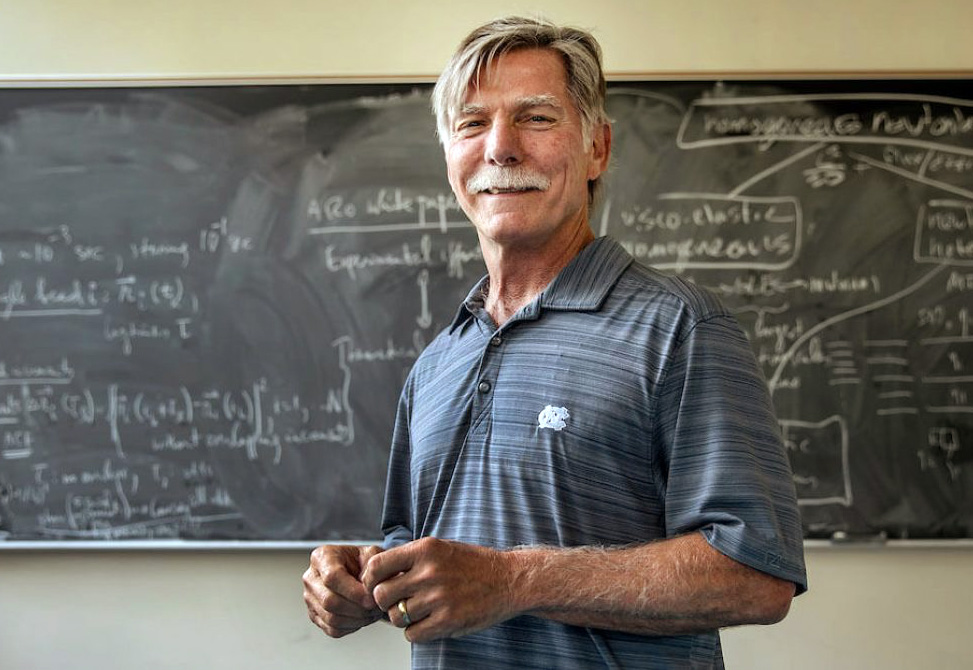
The Carolina Women’s Leadership Council honored M. Gregory Forest with a 2017 Faculty Mentoring Award. The council established the awards in 2006 to recognize faculty who mentor undergraduate students, graduate students and junior faculty. The receipient receives a $5,000 stipend.
M. Gregory Forest, the Grant Dahlstrom Distinguished Professor in the Department of Mathematics, received the faculty to junior faculty mentoring award. Forest holds joint appointments in the departments of Biomedical Engineering and Applied Physical Science, and is also director of the Carolina Center for Interdisciplinary Applied Mathematics. In his twenty years at Carolina, one nominator wrote, Forest has “worked tirelessly to promote the excellent interdisciplinary research of these faculty, bringing in experts from other departments and schools across campus.” Another nominator described Forest as “a powerful force” in increasing the number of female faculty in the department through both regular hires and the Provost’s diversity faculty hiring program.
Congratulations Greg!
Zeliha Kilic wins Tanner Award
Zeliha Kilic wins Tanner Award
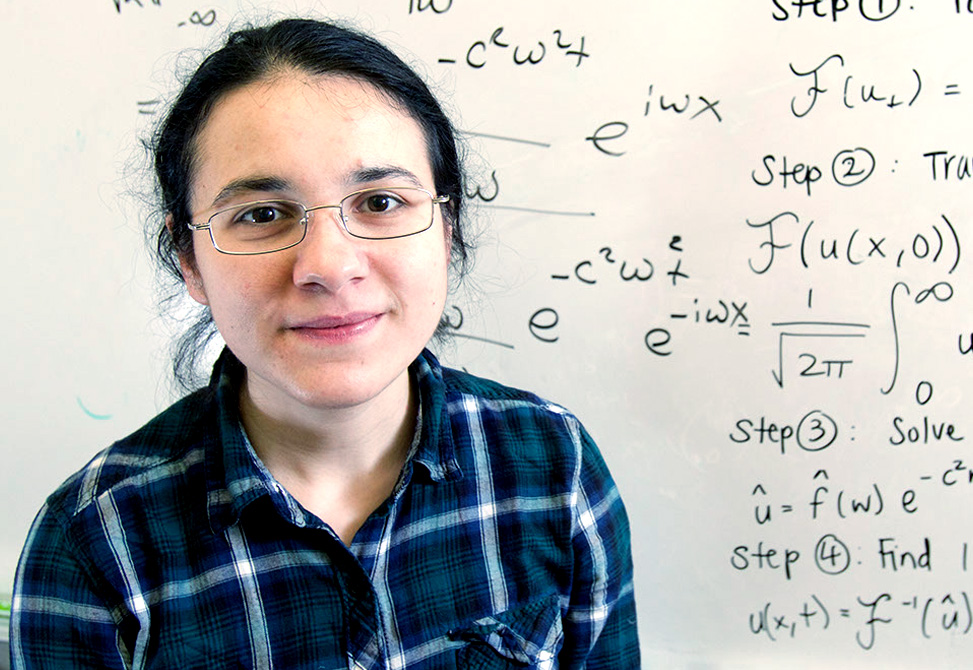
Twenty-four faculty members and teaching assistants have been named winners of the University of North Carolina at Chapel Hill’s 2017 University Teaching Awards. The recipients were recognized during halftime of the men’s basketball game against Pittsburgh on January 31st. Chancellor Carol L. Folt also hosted a spring banquet in honor of the winners in April.
From the department of Mathematics, Zeliha Kilic won a Tanner Award for Excellence in Undergraduate Teaching by Graduate Teaching Assistants
The University Committee on Teaching Awards encouraged students to nominate deserving faculty and graduate teaching assistants for the awards and oversees the selection process. The committee chose recipients who promote the value of undergraduate teaching by example, demonstrate concern for students through interaction and approachability inside and outside the classroom, create meaningful learning experiences and maintain high expectations of their students.
“Rewarding student-teacher relationships are the foundation for success at our University,” said James W. Dean, Jr., executive vice chancellor and provost. “Carolina is always proud of its talented faculty, and it is especially satisfying when students help the University recognize the meaningful impact our teachers make to their lives.”
Congratulations, Zeliha!
Arts Everywhere Day
Arts Everywhere Day
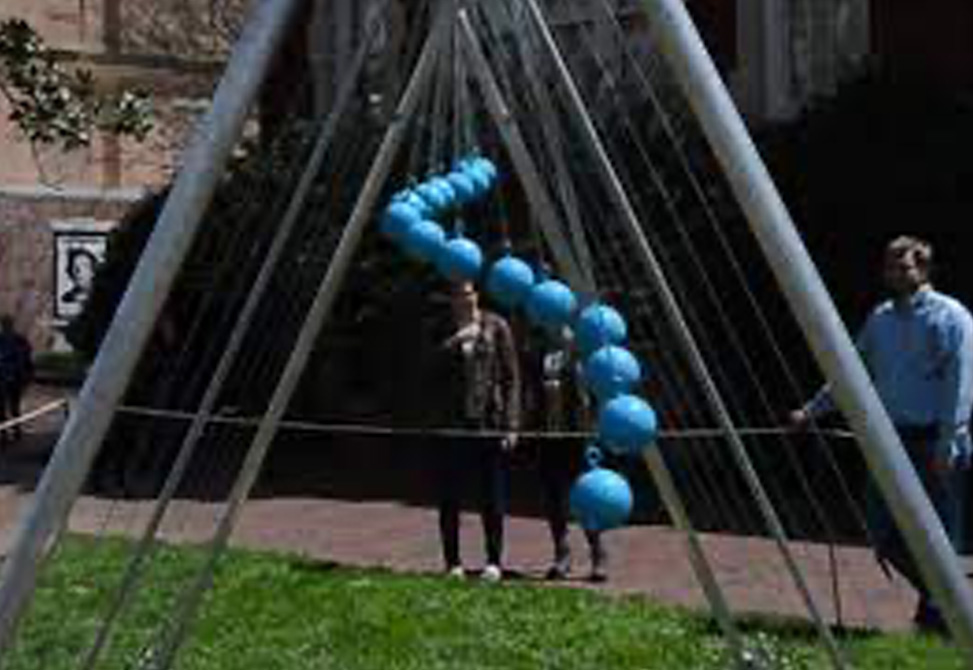
A scaled up wave-pendulum machine became a collaboration between the UNC Departments of Mathematics, and Physics & Astronomy. It was unveiled on the lawn in front of Phillips Hall as part of UNCs art festival,Arts Everywhere Day, which is began April 7th.
The device was built by Phil Thompson in the machine shop, designed by UNC Math Grad student Francesca Bernardi and UNC Math Postdoc Dan Harris with funds from the Arts Everywhere program. Of course, we used Carolina Blue, WAY TO GO HEELS! Come see it in action from Noon-Five PM this Friday!, and see if we can improve its tuning by then.
Paul Cornwell Wins Prize
Paul Cornwell Wins Prize
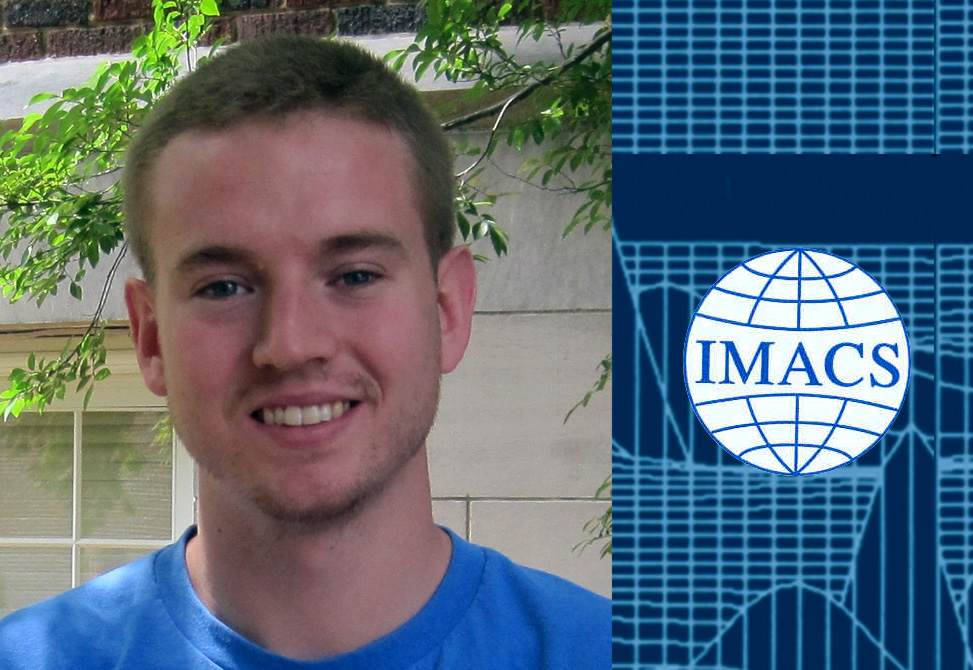
Graduate Student Paul Cornwell was invited to give a talk at the IMACS Nonlinear Waves meeting, March 29 – April 1, 2017, in Athens, GA, and was awarded the Student Paper Prize, for his contribution. Huge Congratulations to Paul!
Metcalfe Gives AMS Lecture
Metcalfe Gives AMS Lecture
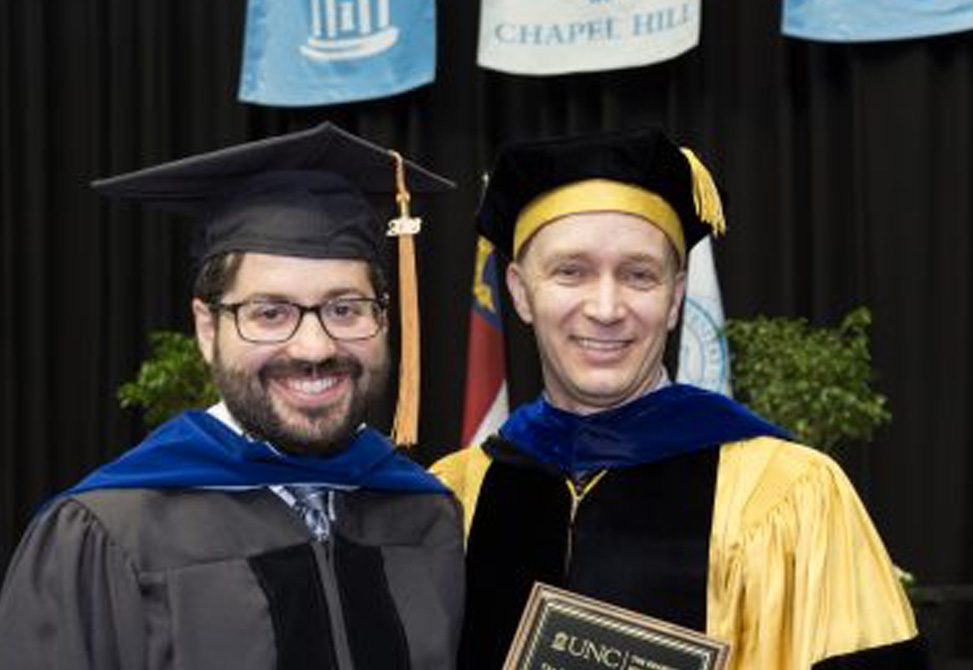
Jason Booth, left, and Professor Metcalfe at a later award ceremony.
The American Mathermatical Society held its Fall Southeastern Sectional Meeting on November 12-13, 2016, at North Carolina State University. Jason Metcalfe was one of the presenters during this meeting. Dr. Metcalfe’s talk was entitled: Local Energy Decay for the Wave Equation. His abstract fopllows below. Jason’s Ph.D. students Bob Booth and Katrina Morgan co-organized a special session.
We will discuss local energy decay estimates for the wave equation, which are measures of the extent to which energy from an initial disturbance leaves a given compact set. These have been especially important for the study of wave equations on nontrivial asymptotically flat space-times as other common measures of dispersion, such as Strichartz estimates or pointwise decay estimates, have been shown to follow once local energy decay is available. We will examine obstacles to such decay estimates, namely trapping and eigenfunctions / resonances, and some partial results that can be recovered when these obstacles are present. We will also discuss the stability of such estimates when the background geometry is time-dependent.
